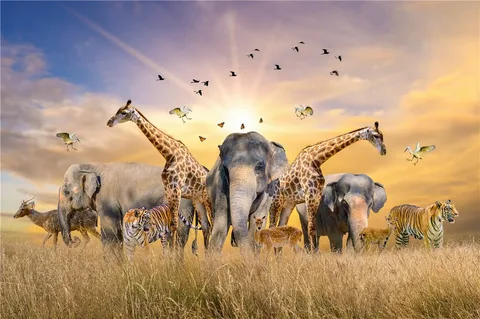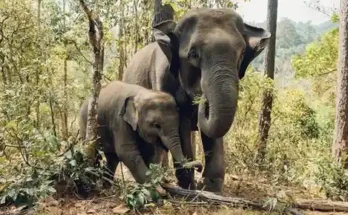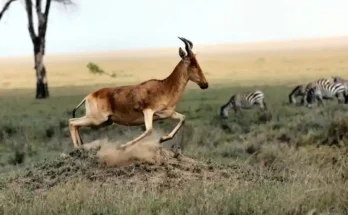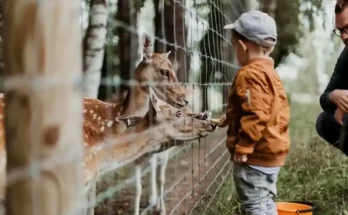There is something deeply humbling about looking into the eyes of an animal. Whether it’s the gentle gaze of a golden retriever, the wary blink of a deer, or the raw glare of a tiger, animals remind us that we are not alone in this world. We share the planet with millions of species, each living, breathing, and thriving in their own rhythm.
Animals are not just part of our world — they are our world. They pollinate our crops, clean our oceans, shape our ecosystems, and in some cases, keep us company on rainy afternoons. Their lives intertwine with ours in ways both visible and hidden. But to understand animals is to step beyond stereotypes and see the variety of roles they play — from the fiercely wild to the lovingly domestic.
The Gentle Ones:
-
Animals That Offer Us Unconditional Affection
Some animals seem almost designed to be our companions. Dogs, for instance, are not just pets — they are partners, therapists, protectors, and best friends. Their loyalty is not earned through grand gestures but through quiet presence. A wagging tail, a nose nudge, a head rested on a lap — these are expressions of love that need no translation.
Cats, in their mysterious elegance, offer a different kind of companionship. They are independent, curious, and complex, yet their soft purrs in the quiet of night speak of a connection that transcends language.
Even animals we don’t typically consider close, like dolphins or elephants, have demonstrated remarkable empathy and intelligence. Dolphins have been known to save drowning humans. Elephants mourn their dead and comfort the grieving. These creatures remind us that friendship is not exclusive to humans.
-
The Importance of Human-Animal Bonds
Our emotional connection with friendly animals isn’t just sentimental — it’s healing. Therapy animals help children with anxiety, veterans with PTSD, and the elderly facing loneliness. The presence of an animal can lower blood pressure, reduce stress, and even extend life expectancy.
We don’t just care for animals. In many ways, they care for us — emotionally, mentally, and spiritually.
The Role of Domestic Animals:
-
More Than Pets
Domestic animals have been part of human life for thousands of years. Dogs helped early hunters. Horses carried warriors across continents. Cows, goats, and chickens fed generations. These animals were not only useful but sacred in many cultures.
In India, the cow is revered and protected. In ancient Egypt, cats were seen as guardians of the home. The domestication of animals was not merely about utility — it was a mutual partnership, a quiet understanding built over time.
Today, while the roles of domestic animals have shifted — from labor to companionship — the connection remains. They are still with us, walking by our sides, watching our homes, and warming our hearts.
-
Living in Harmony with Domestic Creatures
Domestic animals rely on us. But they also teach us. Responsibility, empathy, routine — these are the quiet lessons of animal care. A child who grows up feeding a rabbit or walking a dog grows up understanding the value of life, the needs of another, and the beauty of routine.
In urban landscapes where concrete and screens dominate, a domestic animal is often the only reminder of the natural world inside our homes.
The Wild and the Dangerous:
-
When Nature Defends Itself
Not all animals are safe to approach. Some, like snakes, scorpions, and big cats, possess natural defenses that can be harmful — even deadly — to humans. But it’s important to understand: most of these creatures are not inherently malicious. They do not seek us out as enemies. Rather, they act out of instinct — to protect, to survive, to defend.
Sharks, for example, have gained a reputation as ruthless predators, but attacks on humans are extremely rare. Most strikes happen when a shark mistakes a swimmer for prey. Snakes strike when cornered. Bears charge when they feel threatened. These animals are not villains — they are just wild, and wildness comes with danger.
-
The Role Harmful Animals Play in Ecosystems
Ironically, the animals we fear are often the most vital to ecological balance. Predators keep populations in check. Scavengers clean up decay. Even venomous creatures contribute — spider venom, for instance, is being studied for its potential in painkillers.
To label an animal “harmful” is to simplify a complex role. Yes, they can hurt us — but they also heal the earth. They are not to be destroyed but respected from a distance.
A Lesson in Empathy:
-
Animals Feel, Think, and React
Scientific studies continue to reveal what ancient cultures always suspected — animals feel. They grieve, celebrate, bond, and dream. Birds remember faces. Crows hold grudges. Octopuses solve puzzles. Pigs are smarter than dogs. Whales sing songs that change over time.
To respect animals is to accept that we are not the only beings with consciousness on this planet. And once we see animals not as objects but as lives — unique and vivid — we become better stewards of the world.
-
Ethical Responsibility Toward All Creatures
This awareness brings with it responsibility. Factory farming, deforestation, poaching — these are not just crimes against nature; they are acts of deep disconnection. When we treat animals as commodities rather than companions in life, we lose a part of ourselves.
Choosing ethical food sources, supporting conservation, adopting rather than shopping for pets — these are small steps that reflect a great truth: how we treat animals mirrors who we are.
The Magic of Coexistence:
From the bee that pollinates to the eagle that soars, from the loyal dog to the elusive jaguar — every animal matters. Some bring comfort, others command caution, but all contribute to the grand design of life.
The more we learn, the more we realize: there are no “extra” creatures in nature. Each has a purpose, a rhythm, a story. We are not above them. We are among them.
The future of the animal kingdom — and our own — depends on coexistence. Urban sprawl, climate change, and greed have pushed many species to the edge. But it’s not too late. We can still choose to be protectors rather than intruders, caretakers rather than conquerors.
By respecting both the cuddly and the wild, the domestic and the dangerous, we honor the full spectrum of life.
Conclusion:
Animals are not just features of our planet. They are the planet — its breath, its balance, its beauty. They walk beside us in trust or caution, in fur or feather, in silence or in song. Whether as friend, helper, or mystery, animals shape who we are.
In knowing them, we come to know ourselves — our empathy, our responsibility, our place in the web of life. And in loving them, we don’t just preserve a species. We preserve the wild, soulful heart of the Earth itself.




